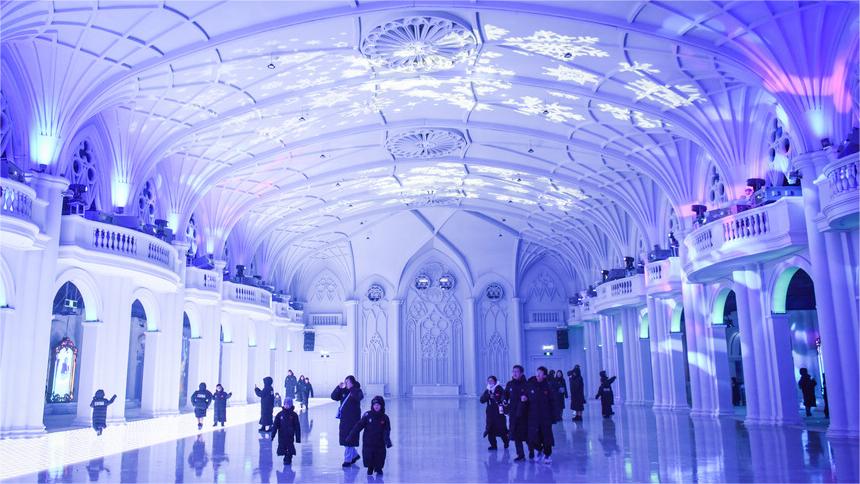Assassination of Hamas, Hezbollah leaders spark escalation fears, impact Gaza truce talks
JERUSALEM/GAZA, July 31 (Xinhua) -- Within 24 hours, Israeli forces allegedly assassinated a top Hezbollah commander and Hamas's chief political leader, moves likely to heighten regional violence and jeopardize ongoing Gaza ceasefire negotiations.
Before dawn, Hamas's political leader, Ismail Haniyeh, was killed in an airstrike in Iranian capital Tehran, who was there to attend the inauguration of Iran's new president. Both Iran and Hamas attributed the attack to Israel, though Israeli officials have yet to confirm their involvement.
Hours before the assassination, Israeli forces executed airstrikes in Beirut, killing Fouad Shokor, a senior Hezbollah commander in retaliation for a rocket attack that killed 12 youngsters in the Israeli-annexed Golan Heights over the weekend.
Following warnings of harsh retaliation from Hamas, Hezbollah, and Iran, Israel was bracing itself for "days of fighting," a government official told Xinhua. The country was closing its airspace from the north to central Israel, but the Defense Ministry said in a statement that there was no change to the Homefront Command's defensive guidelines for civilians.
The killings could provoke retaliation from Hezbollah and its ally Iran, and may prompt Hamas to withdraw from months of Gaza truce negotiations.
Israel's state-owned Kan TV news, citing Israeli diplomatic sources involved in the negotiations, reported that Haniyeh was a key figure in the talks, and his assassination is expected to "significantly impact" the negotiations.
Qatari Prime Minister Mohammed bin Abdulrahman Al Thani, Qatar's chief negotiator, expressed doubts about the continuation of talks. "Political assassinations and the continued targeting of civilians in Gaza during negotiations lead us to ask: how can mediation succeed when one party assassinates the negotiator on the other side? Peace needs serious partners," he wrote on the social media platform X.
Egypt, which leads the negotiations alongside Qatar, condemned the attacks. Egyptian Foreign Minister Sameh Shoukry stated that the killings "further complicate" the talks and undermine efforts to secure a Gaza ceasefire and negotiate the release of over 100 hostages held by Hamas.
Israel has repeatedly threatened to kill all Hamas leaders involved in the Oct. 7 surprise attack last year, including Haniyeh. However, his assassination came at a sensitive time, just as mediators awaited Hamas's response to a revised deal proposal from Israel.
Nimrod Goren, a senior fellow for Israeli Affairs at the Washington-based Middle East Institute, told Xinhua that the timing might have been influenced by "an operational opportunity" due to Haniyeh's presence in Iran rather than in Qatar or Türkiye, where Israel avoids such attacks. "It could also be tied to other events happening in Lebanon and Iraq, showcasing the linkage between the different components of the Iran axis," he said.
Retaliation attempts and "some sort of escalation" are expected, but international mediators should work to prevent it from spilling over into a full-fledged war, Goren said.
Ori Goldberg, an Israeli political commentator, thinks that an all-out regional war is unlikely.
"Neither side wants a war," Goldberg said. According to Goldberg, Israel is overextended with domestic turmoil and the ongoing Gaza war, depleting its resources, while Hezbollah, facing severe conditions in Lebanon, risks losing power if war occurs.
Ahmed Rafiq Awad, a Ramallah-based political expert, told Xinhua that the assassination will no doubt impede the truce talks and lead to the continuation of the war in the Gaza Strip.
The expert noted that the axis of resistance might respond to the attack with "large and dangerous" operations, further expanding the current conflict.
Jihad Harb, a Ramallah-based analyst, said the assassinations in Lebanon and Iran portrayed Netanyahu before the Israeli public that he can make decisions regarding the operation, and restores confidence and part of the deterrence on the external level for the Israeli army.
Harb noted that it is still too early to predict the possibility of a regional war, but there's a chance that the Iranian government will respond to the attack at a certain time, and Israel and Hezbollah expand their confrontations on the northern front. Enditem
(Nick Kolyohin from Jerusalem also contributed to the story.)
Photos
Related Stories
- Masoud Pezeshkian sworn in as Iran's 9th president
- Iran, The Gambia resume ties after nearly 14 years
- Iran's supreme leader endorses Pezeshkian as new president
- Iran looks forward to further cooperation with China: president-elect
- Iranians elect reformist president, anticipating new measures to navigate challenges
- Former Health Minister Masoud Pezeshkian wins 14th presidential election in Iran
- Voting ends in Iran's presidential runoff
- In pics: presidential candidates during election campaign in Iran
- Confrontation will not solve Iran nuclear issue: Chinese envoy
- Iran rules out sabotage explosion behind Raisi's helicopter crash
Copyright © 2024 People's Daily Online. All Rights Reserved.









